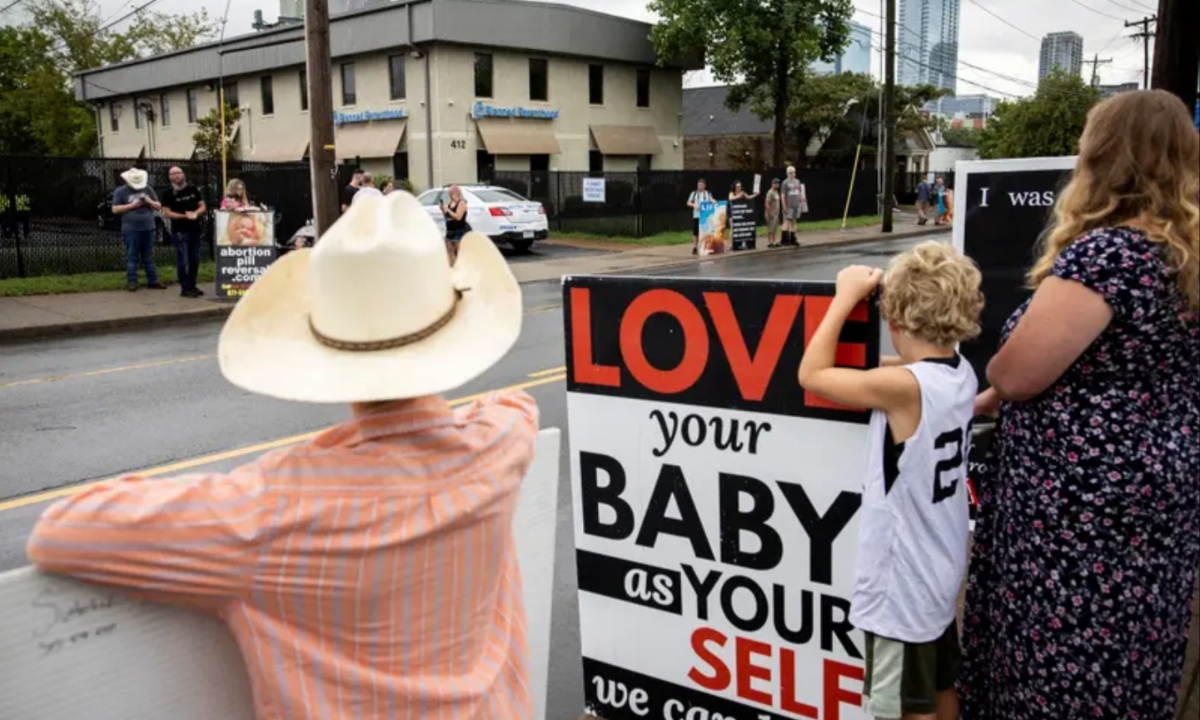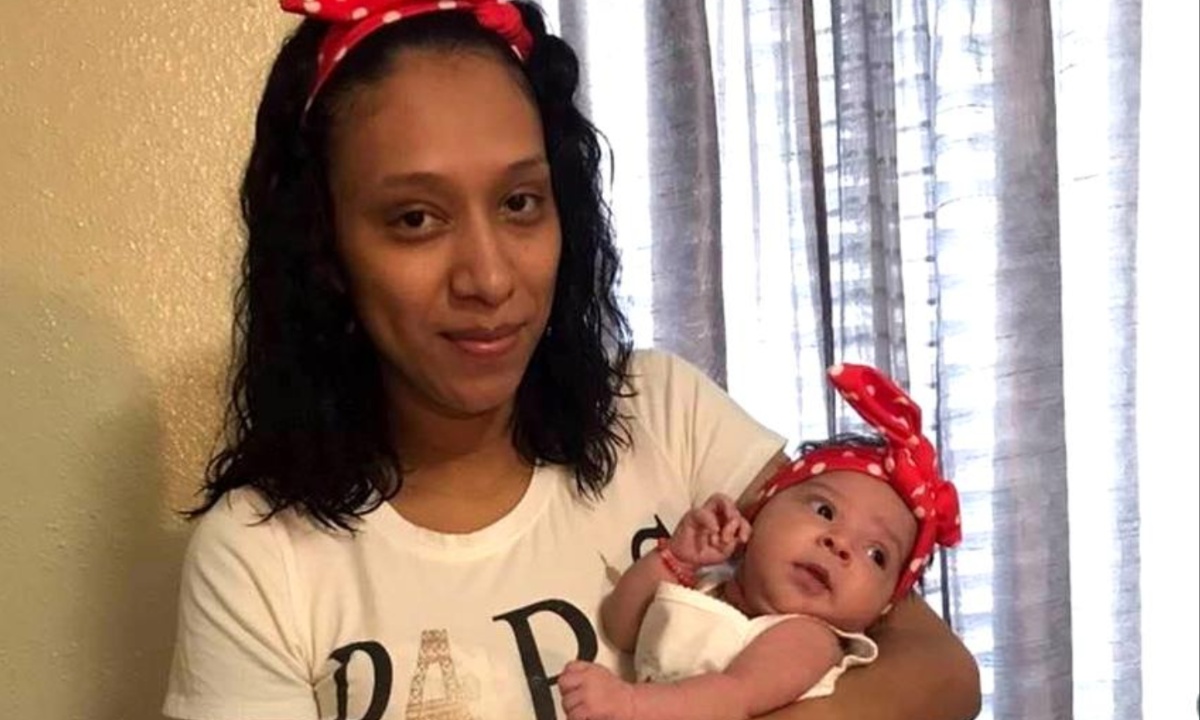ProPublica’s investigation into the deaths of two pregnant women in Texas, caused by untreated miscarriages due to the state’s strict abortion laws, has prompted lawmakers to introduce bills seeking to create new exceptions to these restrictions. The proposed legislation aims to allow doctors greater freedom to intervene in cases where patients face health risks during pregnancy.
This comes in response to an op-ed by State Rep. Bryan Hughes, a key architect of Texas’ abortion bans, who defended the current legal exceptions, claiming they were clear. However, more than 100 Texas OB-GYNs disagree, stating that these laws severely limit their ability to provide appropriate, evidence-based care for patients facing complications during pregnancy.
Texas’ abortion law carries severe penalties for doctors who perform abortions, including prison sentences, large fines, and the loss of their medical licenses. The current law permits exceptions in cases where a pregnancy threatens the life of the mother or in situations involving ectopic pregnancies or premature ruptures of the water.
However, these exceptions have been criticized by medical professionals for being insufficient and unclear, which has led to dangerous delays in care. The bills filed in the Texas House and Senate aim to expand these exceptions, allowing doctors to perform abortions when the health of the patient—both physical and mental—requires it, including cases where preserving the patient’s fertility is at stake.
Additionally, the bills would allow abortions in cases where a fetus has a fatal anomaly or is unable to survive outside the womb.

Rep. Donna Howard, who filed the bill in the Texas House, emphasized the urgency of clarifying the law to prevent further fatalities. She expressed her deep sadness and disbelief that women were dying due to the ambiguity in the law.
The medical community, particularly OB-GYNs in Texas, has echoed this sentiment, arguing that the current legal framework threatens the health and safety of pregnant women in the state. ProPublica’s investigations highlighted several tragic cases, including that of Josseli Barnica, who died after her miscarriage was not treated according to medical standards.
Doctors delayed necessary care for 40 hours due to concerns about the legal implications, which left her exposed to infection. Her death, deemed preventable by experts, highlighted the dangers posed by the current abortion laws.
The confusion over what constitutes a “medical emergency” is a central issue in the debate over Texas’ abortion laws. Many women experiencing complications like miscarriages may not be immediately unstable, but the law requires them to wait until signs of serious illness are apparent before any intervention is allowed.
This results in delays in care, increasing the risk of infections and other life-threatening complications. Critics argue that this delay violates medical standards and puts patients at significant risk. The fear of prosecution has created a chilling effect among doctors, who are now hesitant to take the necessary steps to intervene in potentially life-threatening situations, especially when the law’s interpretation is vague.
State Sen. Bryan Hughes, in defending the abortion laws, argued that doctors are legally required to act when a mother’s life or major bodily function is in jeopardy, but many in the medical community strongly disagree with this interpretation.

They believe the law’s lack of clarity forces doctors to make difficult decisions based on the fear of criminal charges rather than on the best interests of their patients. Texas Attorney General Ken Paxton has also made it clear that he will prosecute doctors if they fail to comply with his interpretation of the law, adding to the uncertainty and fear felt by medical professionals.
This threat of prosecution was highlighted in a case where a Dallas woman had to travel out of state for an abortion after Texas courts sided with Paxton, who argued that her situation did not qualify as a medical emergency under the law.
The medical community has repeatedly warned that the current abortion laws in Texas are causing harm to both patients and doctors. In response to ProPublica’s reporting, 111 Texas OB-GYNs signed a letter placing the blame for preventable deaths on the law, stating that it prevents them from providing life-saving care.
Their concerns are echoed by a lawsuit filed by 20 women who were denied abortions despite facing high-risk pregnancy complications. The Texas Supreme Court has thus far refused to clarify the law’s exceptions, leaving patients and doctors in a state of uncertainty.
Dr. Austin Dennard, one of the doctors involved in the lawsuit, shared her personal experience of being forced to travel out of state for an abortion after discovering that her fetus had a fatal condition. She emphasized that lawmakers have failed to listen to the medical professionals who are directly impacted by these laws.
Sen. Carol Alvarado, who introduced the Senate version of the bill to expand abortion exceptions, worked closely with physicians to draft the legislation. She emphasized that the bill is not about politics but about ensuring that doctors can provide necessary care without the fear of prosecution.
Alvarado and others supporting the bill argue that the current law undermines trust in the healthcare system and causes unnecessary harm to women. However, legal experts caution that while these new exceptions may save some lives, the continued threat of criminal penalties could still deter doctors from providing the care that is needed.
The Texas Medical Board has issued guidance stating that doctors are not required to wait for an emergency to become imminent before intervening in cases where abortion is necessary for a patient’s health. However, many doctors, including Dr. Dennard, believe that the board’s guidance is inadequate.
The guidance still leaves many questions unanswered about how the law should be applied in specific situations, and without clearer instructions, doctors are left in a state of uncertainty. The Medical Board, whose members are appointed by the governor, only issued this guidance after two years of public pressure and the Texas Supreme Court’s intervention, further illustrating the lack of clarity surrounding the law.

While the state legislature did introduce a new exception for conditions like ectopic pregnancies and previable premature rupture of membranes, many doctors argue that these changes do little to alleviate the broader issues caused by the law.
The new exception allows doctors to present an “affirmative defense” if they face legal charges for providing abortion care, but this does not eliminate the risk of criminal penalties. Many doctors are reluctant to rely on this exception, fearing that it may not protect them from prosecution or loss of their medical license.
In response to Rep. Hughes’ defense of the abortion ban, several letters to the editor of the Houston Chronicle challenged his assertions, with many arguing that the law itself is the cause of the tragic outcomes, not media reporting.
Medical professionals and ethicists, including Dr. Trevor M. Bibler, argue that the tragedies would not occur if doctors were not threatened with jail time for upholding medical standards of care.
Rep. Donna Howard has expressed hope that the Texas Legislature will listen to the concerns of the medical community and create clearer health exceptions in the law. She pointed out that even President-elect Donald Trump has supported exceptions for cases of rape and incest, which are not currently allowed under Texas’ abortion ban.
The situation in Texas has become a cautionary tale for other states considering similar abortion restrictions. As lawmakers in other states, such as Wisconsin, debate the impact of historical abortion bans, they are looking to Texas as an example of the challenges and risks posed by strict abortion laws.
The case of Josseli Barnica, in which medical providers were unwilling to intervene due to fear of prosecution, highlights the potential consequences of these laws in other states. In Texas, the ongoing debate and the experiences of doctors and patients show the complex and often dangerous realities of enforcing strict abortion laws.


